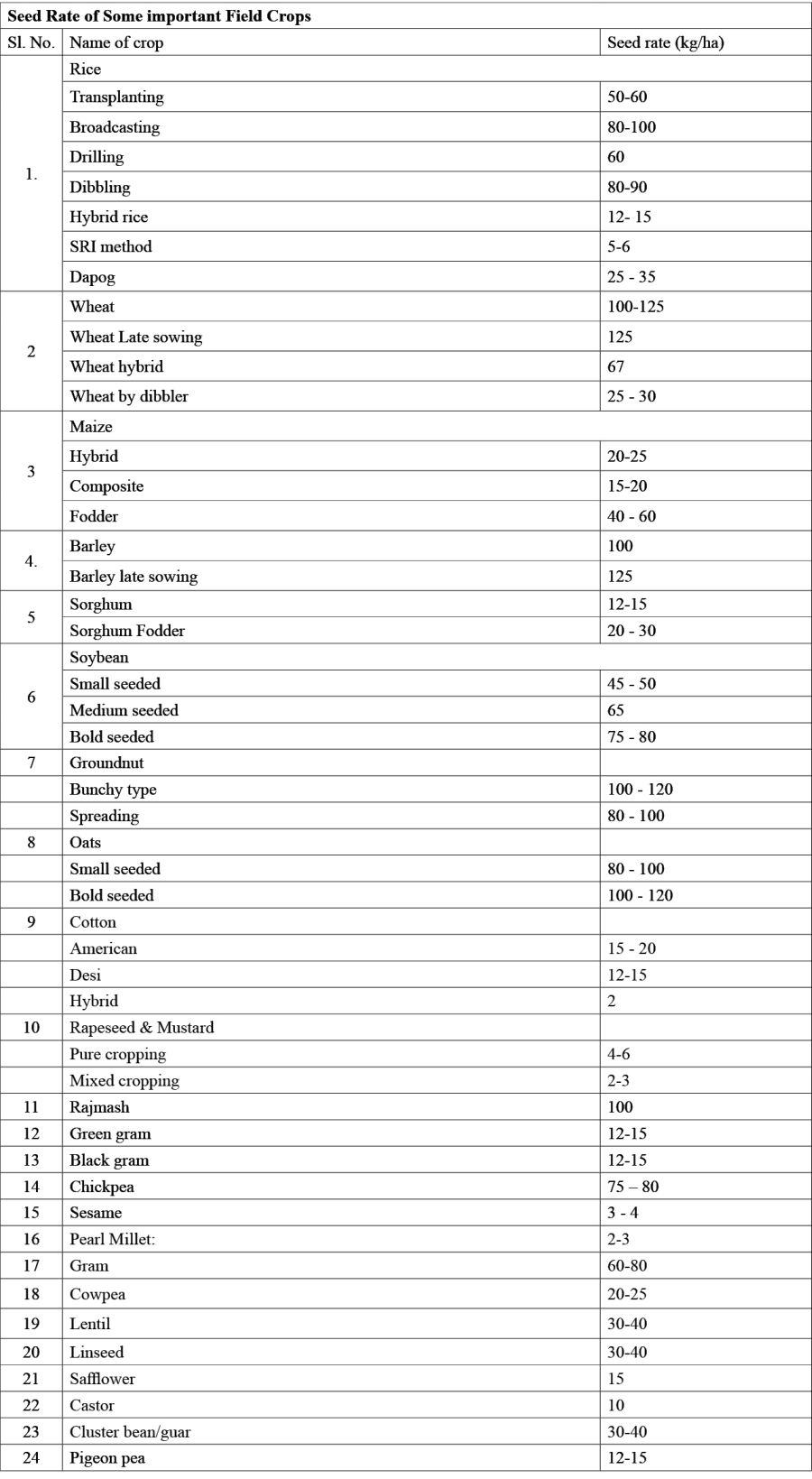
Seed rate is the amount of seed of any crop which is to be sown in a particular piece of land. The unit of seed rate is kg/ha.
Importance of seed rate
• Helps in selection of sowing method.
• Helps in selection of plant species and variety.
Amount of seed rate: The actual seed rate of crops for sowing is fixed, however it is changeable because the seed rate of different crops depends on various factors. Some factors determining seed rate of different crops are as follows:
1. Variety of crop: There are different types of variety of field crops i.e. local variety, improved variety and hybrid varieties. Each requires different seed rate. Local and improved variety requires more amount of seed rate than hybrid varieties. Example- Seed rate of improved variety of tomato is 400 – 500g while it is 100 – 125g for hybrid varieties.
2. Species of crop: Seed rate also depends on the species of crop. Generally, horticultural crops require more seed rate than agricultural crops. Horticulture crops e. g. potato requires quintals of seed for sowing in per hectare area.
3. Type of sowing: Seed rate fluctuate according to method of sowing. In rice cultivation, different methods of seed sowing are adopted by the farmers and accordingly the seed rate varies.
4. Size of seed: Seed rate will be low with small sized seed comparison to big sized seed. For example seed rate of hybrid tomato is 100 – 125g while the seed rate of potato is 300 – 350q/ha.
5. Germination percentage: Germination percentage is a major factor for deciding seed rate. Seeds with low germination percentage are sown in more quantity. Seed germination test can be performed in a small piece of land before sowing in main field.
6. Availability of soil moisture: Seed rate can be increased for getting optimum plant density when soil moisture is low.
Seed is the basic inputs of agriculture.The judicious use of seeds will enable a farmer to minimize cost as well enable him to maintain the right planting population in a given area.
Article contributed by Dr Bendangla Imsong, ACTO (Plant Breeding), KVK Dimapur; Dr Moatoshi, Technical Assistant, ICAR Nagaland Centre; Dr Ebibeni Ngullie, Senior Scientist & Head i/c, KVK Dimapur.





